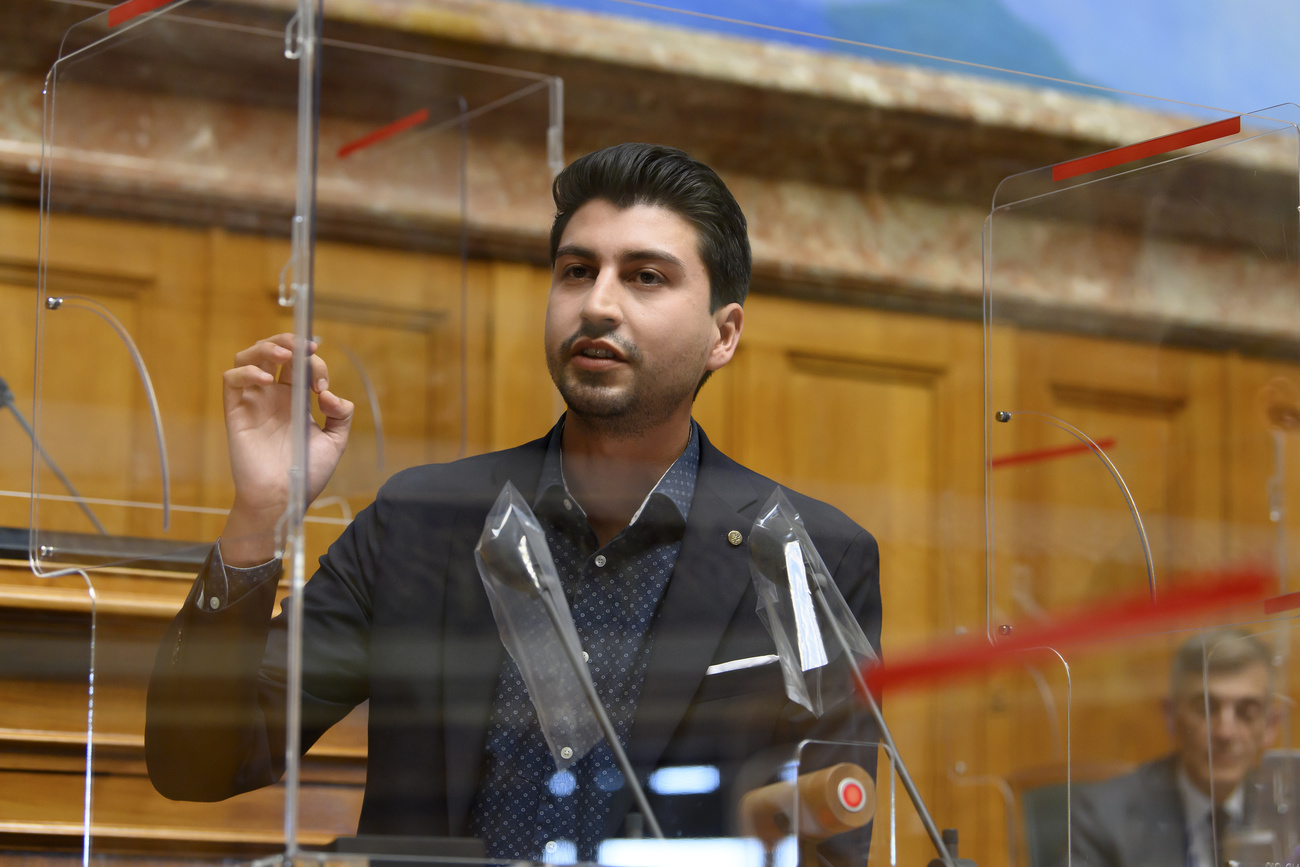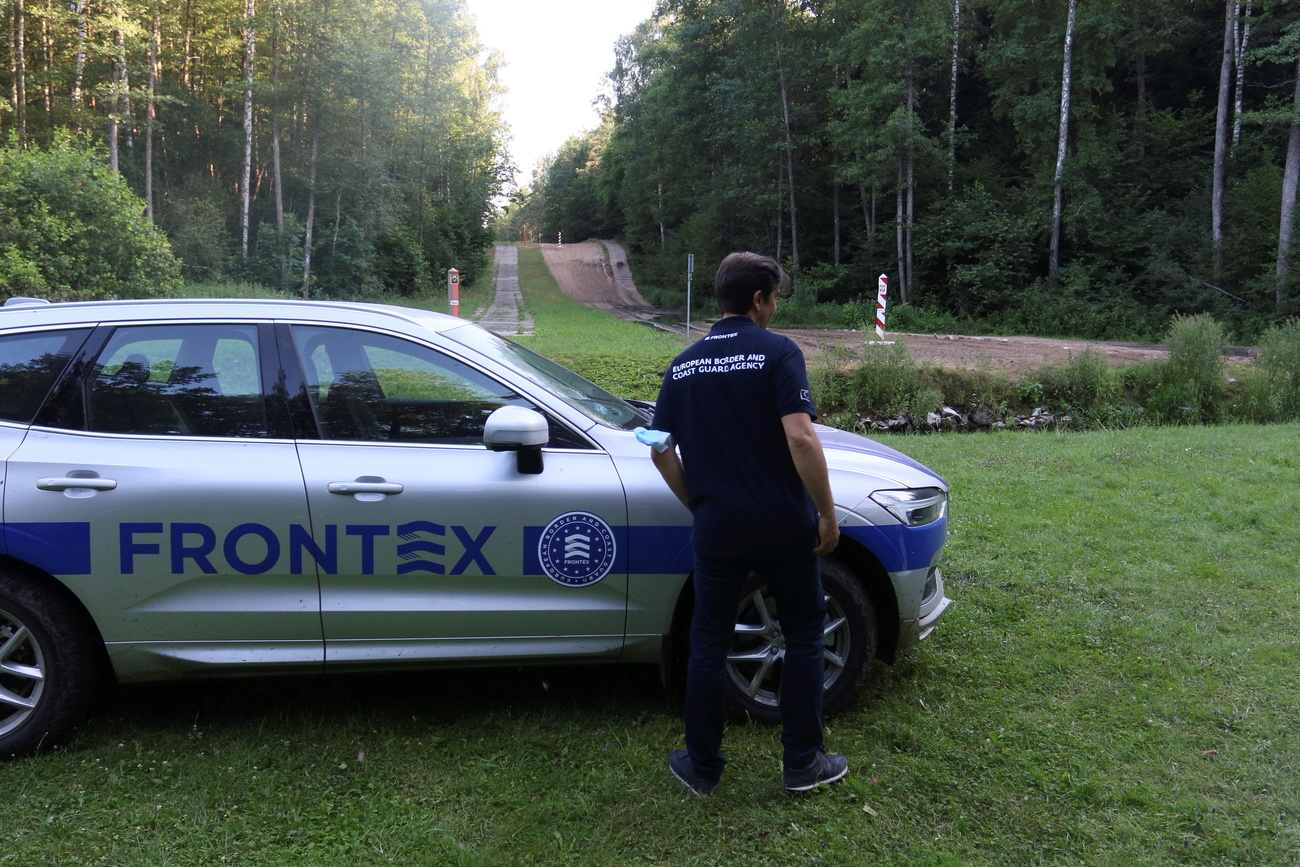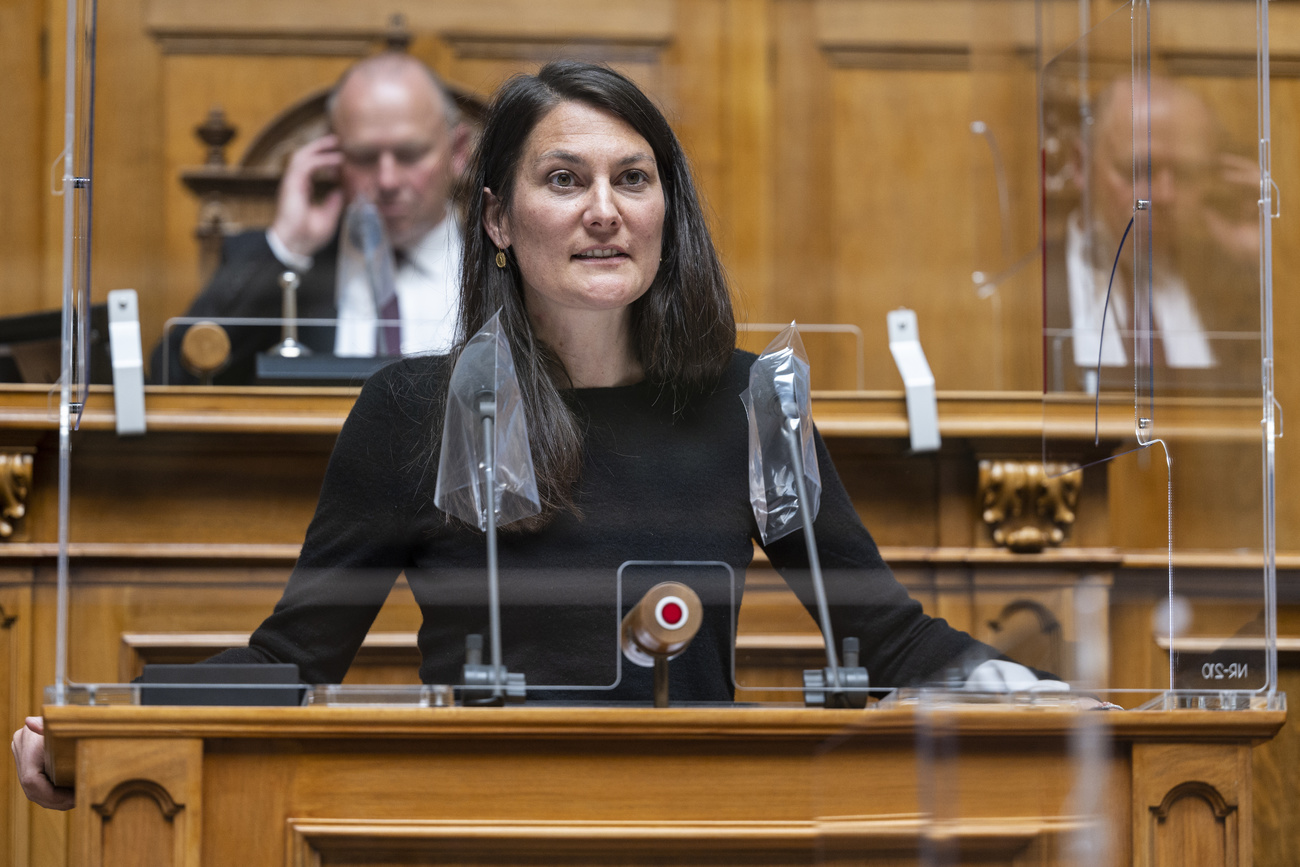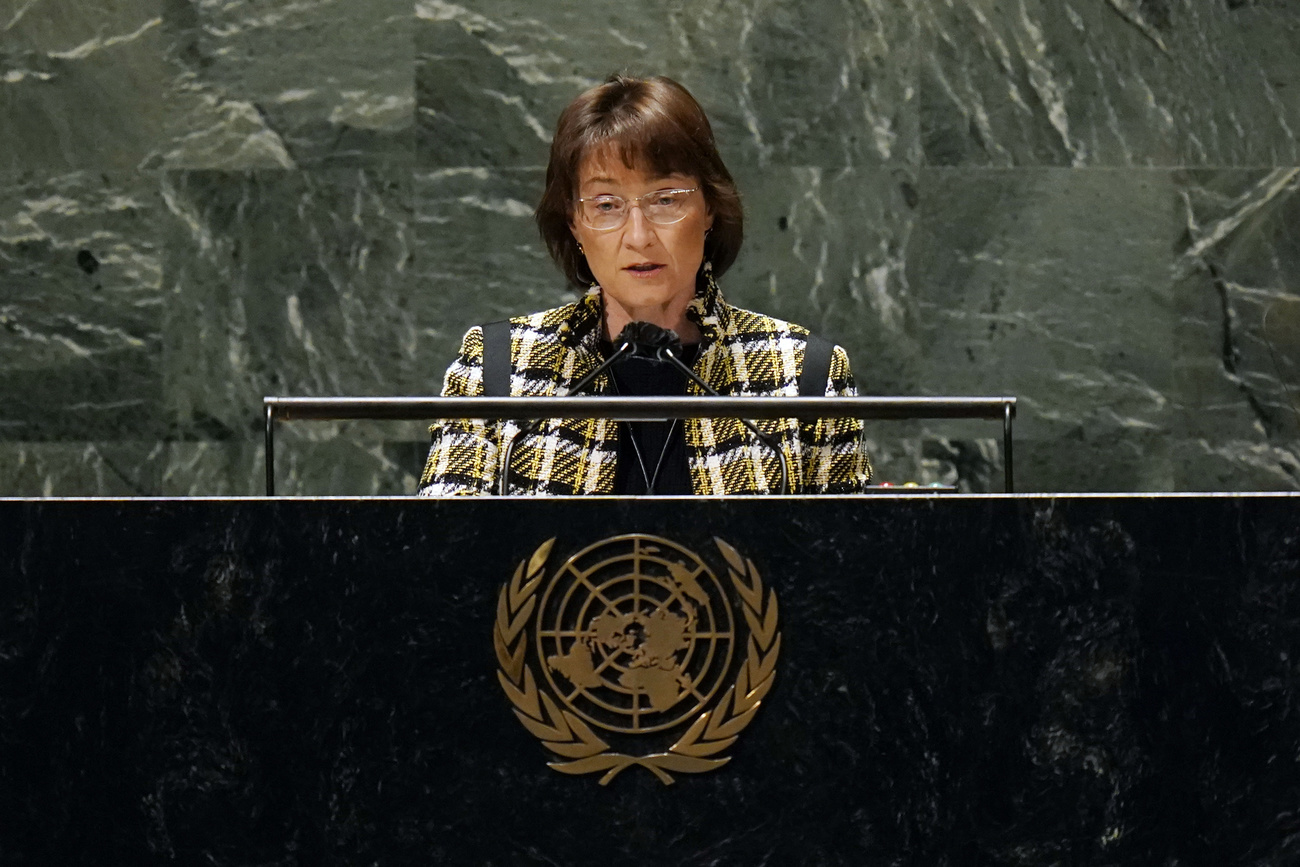Frontex vote: ‘We need legal migrant routes as well as border controls’, says Fabian Molina

The Swiss will vote on May 15 in a referendum challenging plans to raise Switzerland’s contribution to the European border agency Frontex. Social Democratic Party MP Fabian Molina speaks out against the planned contribution hike. The bill must be reworked to include humanitarian safeguards, he tells SWI swissinfo.ch.
As an associate member of Europe’s free-movement Schengen area, Switzerland contributes to the financing of Frontex. The agency’s budget has been increased, which would mean a rise in Switzerland’s contribution from CHF24 million ($25 million) to CHF61 million a year. The Migrant Solidarity Network and other organizations have resorted to a referendum to oppose thisExternal link.

More
Switzerland votes on its contribution to European border agency
Fabian Molina is a Social Democratic Party lawmaker from Zurich. The leftwing Social Democrats, together with the Greens, are supporting the referendum. Molina points out that the agency has faced heavy criticism in recent years and is calling for border protection to be linked with extending migrant resettlements in Switzerland.
SWI swissinfo.ch: Russia has invaded Ukraine, and Switzerland and the EU have started talks on their future relations. Is the timing of this vote rather unfortunate?
Fabian Molina: Given the huge sense of solidarity with refugees from Ukraine that we are seeing at the moment, it is the right time to discuss Switzerland’s responsibility in a future Europe. The matter at stake in this referendum is whether Switzerland wants to pay more money for the EU border protection agency without simultaneously creating legal migrant routes. Or do we want to send back to parliament this proposed implementation of the Schengen rules?
SWI: The referendum committee, however, is clearly in favour of liquidating Frontex. Is that also the position of the Social Democrats, who are supporting the referendum?
F.M: Whether or not Frontex should be liquidated is something one could discuss at length. But it is not the subject of this vote. Instead, it’s a question of whether Switzerland should adopt the federal decision on financing Frontex as it is, or not. The Social Democrats are clearly in favour of Schengen but we say: we need more than just border protection, we also need legal migrant routes.

More
Frontex vote: ‘We risk leaving Schengen,’ warns parliamentarian Tiana Moser
SWI: Those in favour of the Frontex billExternal link say that if the Frontex contribution hike is rejected, Switzerland would automatically slide out of the Schengen-Dublin agreements. Do you dispute that?
F.M: That is fear-mongering and it is completely untrue. There is no such automatic mechanism in the Schengen Agreement. What matters is what the government tells the European Commission. And the government can’t report that Switzerland no longer wants to be part of an evolving Schengen without asking parliament. And parliament is clearly in support of Schengen. The Social Democratic Party has already put forward a counter-proposal to the Senate on how things could proceed if the referendum is victorious: namely, that we could pay our contribution to protecting the common external borders, but would also take on more refugees. Doing one of these without the other is not a caring position.
SWI: Switzerland is already now represented on Frontex’s supervisory board. What kind of influence do we have in practice?
F.M: It’s important that Switzerland remains in Frontex in order to improve this organisation. But it’s completely unclear what exactly the government is doing on the supervisory board. If we are to dramatically increase our payments to Frontex then I expect that Switzerland will live up to its responsibility and fight against push-backs, demand a reform of this agency and ensure that people no longer have to take the dangerous route across the Mediterranean but instead have legal routes to enter Switzerland via UNHCR [UN refugee agency] resettlement quotas.
SWI: The European Parliament doesn’t want to sign off on Frontex’s 2022 budget. The reasons are accusations by the anti-fraud authority OLAF. Is this a sign of the state of European asylum policy?
F.M: We need border protection based on human rights that allows people to file an application for asylum. It also needs to offer particularly vulnerable refugees, for example in Lebanon, a way of getting assessed by the UNHCR – and if they do have the right to protection, they should be able to come to Europe. The UNHCR has many times called on us to take on such refugees via resettlement, and various European states have taken part in this. Switzerland hasn’t. Switzerland is not being supportive here.
SWI: Your party is constantly putting the issue of resettlement extension on the parliamentary agenda but has not managed to push it through. Why not?
F.M: So far the People’s Party, the Radical Party and the centrist parties have fought against extending resettlement quotas. This Frontex bill was the first time that we almost succeeded in linking border protection with legal migrant routes in the Senate. The House of Representatives wanted nothing to do with it, however. That is why this referendum is so important – we can make clear that a European, supportive Switzerland needs both: border protection and legal migrant routes.
SWI: The migrant push-backs at Europe’s external borders have been comprehensively documented, but these are normally carried out by national authorities. Is Switzerland doing enough in its bilateral structures with European states to ensure human rights are respected?
F.M: The border states and national security authorities are of course playing a horrible part in this. But Frontex is doing nothing to improve the situation. On the contrary, there are reports about how it is concealing this activity or even supporting it. Switzerland hasn’t paid much attention to this so far. That has to fundamentally change.
SWI: The EU’s decision to bolster Frontex also comprises a plan to boost the protection of migrants’ basic rights. Is that enough?
F.M: It’s a small step in the right direction. But obviously even in Brussels, people don’t think it’s enough – otherwise they wouldn’t have blocked funding. Europe needs to reform its asylum policy to ensure that refugees are taken on by all Schengen member states and that responsibility isn’t left to the countries on the external borders.
Translated from German by Catherine Hickley.

More
Frontex vote: ‘We risk leaving Schengen,’ warns parliamentarian Tiana Moser

In compliance with the JTI standards
More: SWI swissinfo.ch certified by the Journalism Trust Initiative





You can find an overview of ongoing debates with our journalists here. Please join us!
If you want to start a conversation about a topic raised in this article or want to report factual errors, email us at english@swissinfo.ch.